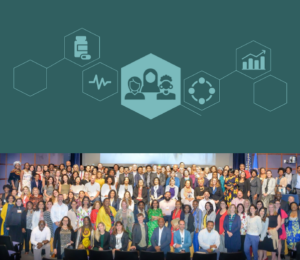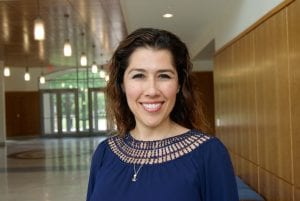From January 2023 through July 2023, Dr. Leng Tang-Ritchie represented Pacific College in the development of the Women’s Health Innovation Opportunity Map, sponsored by the Bill & Melinda Gates Foundation and the US National Institutes of Health (NIH). Leng Tang-Ritchie is our Vice President of Clinical Education and Operations.
Women’s health is an area that often lacks innovation, receiving less research funding than it should when compared to the impact it could have. In part, this is due to a mistaken belief that women’s health only matters during the reproductive years, ignoring women’s health needs across their whole lives and leaving large gaps in medical research and innovation. This means women often lack the basic tools, treatments, and services they need to stay healthy. Stakeholders are starting to address the gaps through improved sex- and gender-based medical training, but without a coordinated plan to align their work.
Collaborative Effort to Construct the Opportunity Map
To help close these gaps, experts and researchers from many different fields and countries worked together for several months to construct the Opportunity Map, a plan to focus global efforts and encourage more investment in women’s health innovation. Ultimately, the goal is to improve tools, treatments, and services for women’s health, reduce suffering, and save lives.
It was an amazing experience to witness and be inspired by this collaboration of 250 experts, activists, and researchers from over 50 countries to identify 50 catalytic opportunities that will improve women’s health and close gender gaps in health research.
–Dr. Leng Tang-Ritchie, DAOM, LAc
If you think a career in holistic medicine is something you would like to pursue, contact us and speak to an admissions representative to get started on your new journey!
The Impact of the Women’s Health Innovation Opportunity Map
The Opportunity Map serves as a guide that stakeholders across the women’s health ecosystem–including researchers, entrepreneurs, investors, government bodies, biopharmaceutical companies, civil society, and more– can use to help advance projects to improve women’s health, reduce morbidity and mortality, and increase well-being.
The document outlines nine broad topics of women’s health innovation, as well as their unique challenges, needs, and objectives. For each topic, it identifies the best opportunities according to their potential to help women, ability to be scaled up, innovativeness, and how well they address unmet needs and promote health equity. Finally, the Map describes specific ways to bring each opportunity to fruition within the next 15 years. Our hope is that the Opportunity Map will pave the way for new research and funding opportunities, consolidated advocacy efforts, and increased global action and investments in women’s health.
Check Out the Full Report or the 4-Page Executive Summary
Featured Posts:
- Women with Disabilities Find Relief with Acupuncture
- How Women can Naturally Reduce the Risks of Heart Disease
- Tang-Ritchie, PCOM-SD Clinic Director, Interviewed on Acupressure
- Higher Education Emergency Relief Fund Emergency Funds Report
- PCOM Celebrates 20th Anniversary as Leader in Oriental Medicine








